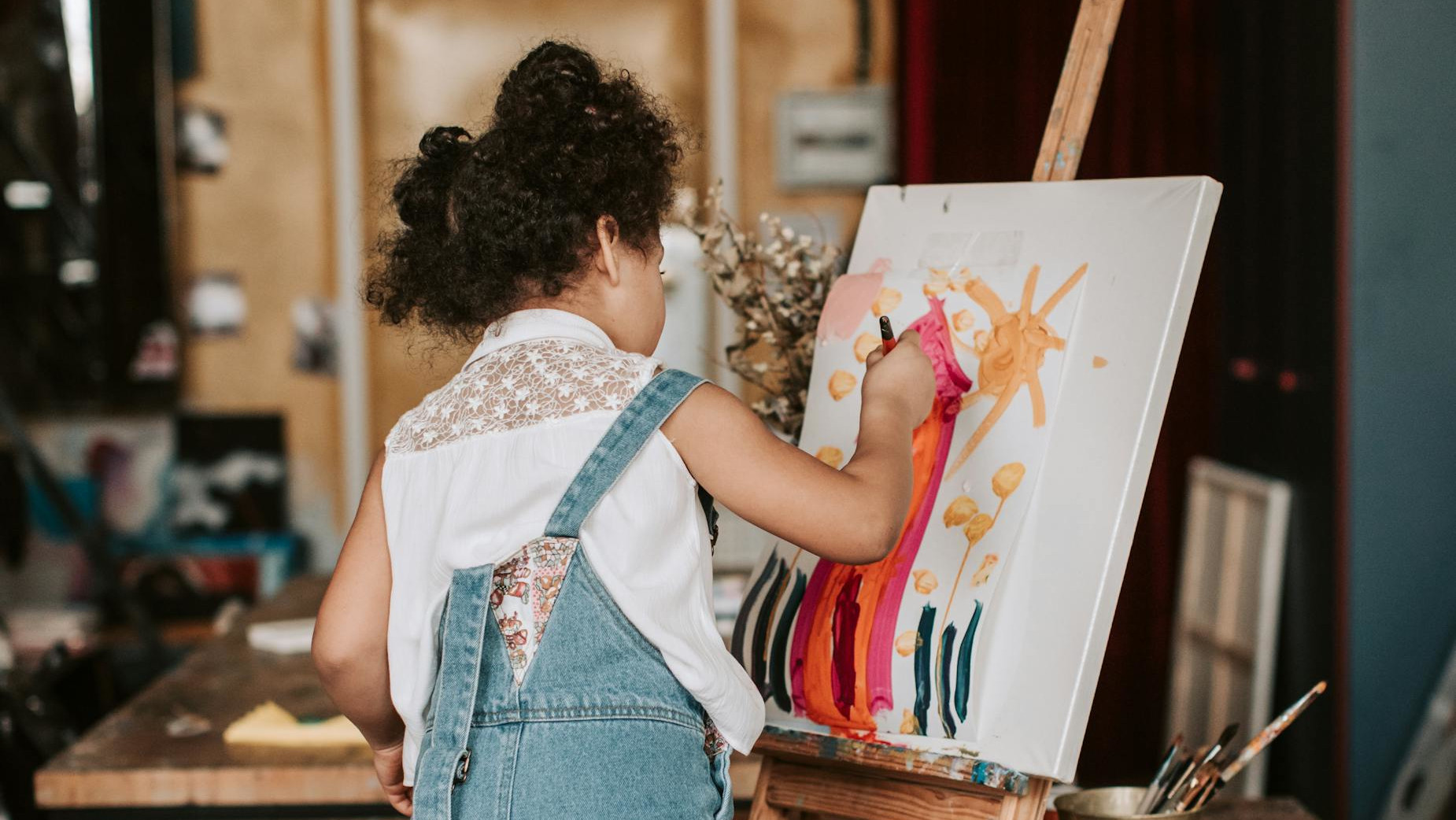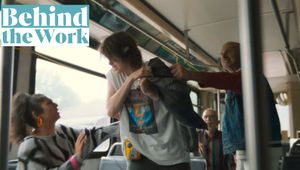
Keir Starmer’s Arts Access Pledge: What Does the Ad Industry Think?

This week UK opposition leader Keir Starmer, the odds-on favourite to be next prime minister, pledged to enhance accessibility to the arts for young individuals from diverse backgrounds. In his address, he highlighted the significant economic impact of the creative industries, something that would only be amplified with better access.
Delivering his speech in London, the Labour leader unveiled an ‘access to the arts’ strategy. This move came shortly after a Labour analysis revealed that nearly 50% of British cultural luminaries nominated for top awards over the past 10 years received their education at private schools.
He argued that over its past 14 years in government the Conservative Party’s disregard for arts education has stunted the industry’s growth and curtailed opportunities for people across various backgrounds.
So what did the UK ad industry think of the pledge? LBB’s Alex Reeves asked some industry leaders to gauge the reaction of a business built on the foundations of access to the arts.
Stephen Woodford
CEO at the Advertising Association
The Advertising Association welcomes the pledge made today by Labour Leader Keir Starmer to unleash a generation of creativity by changing the curriculum to improve access to creative education for people from working-class backgrounds.
We welcome the plan to introduce a Curriculum Assessment Review to broaden opportunities for state-school pupils and ensure that children don’t miss out on subjects such as music, art, design, sport and drama.
This is an important step for improving social mobility within the industry, as our research has shown that 20% of UK advertising professionals attended fee paying schools versus a national average of just 8%. This is why our industry has pledged to improve the experience & representation of talent from working-class backgrounds as one of our All In actions.
Ensuring that all pupils have access to a creative education early on in their life is vital across the wider creative industries too, beyond advertising and marketing, with Creative UK stressing the importance of “protecting our creative talent pipeline at all levels”.
We will continue to work with stakeholders to support policies which open our industry to all.
Nick Gill
Partner at BBH London and leader of The Barn
For a long time now, the route into the communications industry has been an expensive and therefore exclusive one. Spiralling course fees have created barriers to entry. Meanwhile, industry commentators talk of declining standards in British creativity.
Making creativity accessible to all isn't just the right and fair thing to do, it's good business. A more diverse communications industry is a richer and more interesting one. It knows how to excite a broader audience because it understands a broader audience.
At BBH Barn we are continuing the great work done by the late, great Tony Cullingham's Watford course. We are paying students’ salaries. We are giving them access not just to the best of BBH people and thinking but that of other great agencies who have kindly offered to help. We are encouraging students not to conform to an industry stereotype but be better versions of themselves. And so far, frankly, it's been wonderful to watch. Something I have observed over many years is the more opportunities you give young people the more they seem to take.
If Keir Starmer is pledging to make arts accessible to every child in Britain then, of course, it is something I'd support. We will only know if he's been successful when we see creativity – across the arts – that is richer and more exciting than ever before.
Jon Williams
Founder at The Liberty Guild
For a bit of context here, I’m from Manchester. My old man was born above an off-licence on Salford docks. Do we need more investment in creative education? Yes, we do. Do we need more investment in the creative industries countrywide? Yes, we do. Do we need class war weaponising for anyone’s political agenda? Do we fuck. In this industry more than any other we are all judged by our work not by where we are from.
Where is the money coming from anyway Keir? Is it from all the neurodiverse kids with statements of special educational needs who are being nurtured in small fee-paying schools all over the country because the state system simply can’t provide for them? Starmer's policy of bringing in VAT on school fees will not affect the Etonian elite, will it? They won’t notice. It’s all just spin…
Dena Walker
Chief strategy officer at Above+Beyond
The prospect of putting creativity back into education at a state school level is tremendously exciting for our industry.
The effect of art education has been empirically proven to increase grades, improve performance in tests and result in more pupils progressing to higher education.
More intrinsically though, teaching art to children teaches them to embrace their curiosity, empathy, creativity and the confidence to fulfil their potential.
Why this news is brilliant for our industry is that the effect of art education has also been shown to have outsized impact within lower socioeconomic communities — the exact spaces that we need to recruit from if we are to be truly what we claim to be: creative, culture-shaping, and representative.
Dan Cullen-Shute
Worldwide chief executive officer and founder at Creature
At Creature, social mobility and creativity are the two things we talk about most: on top of that, I’m just back from SXSW, where I had the privilege to talk about the work we’ve done to improve the creative industry’s attitude to and treatment of its more junior people, and am scheduled to head to a secondary school in Leeds tomorrow to talk about how I got into advertising, and why it should be firmly on their list of career options, so it’s fair to say that this one is right in my wheelhouse.
All I can really say is that it is honestly so refreshing to hear something from a politician that is just… right.
Creativity is important, and creative skills are valuable and exportable, and the current government’s obsession with ‘practical’ degrees is both upsetting and damaging. There is no doubt that all the creative industries, not just advertising, are missing out on supremely talented people because the doors just aren’t open wide enough, and any initiative (political or otherwise) that aims to change that has my vote (figurative or literal). This is a straightforward, brilliant thing, and I’m absolutely delighted it’s been said.
Chris Page
Founder at Jelly
The creative industries are a huge part of the UK’s GDP, this is an irrefutable fact, they have been a massive part of our export strength for a long time now. Film, advertising, music, gaming, fashion, all these industries are a huge jewel in the crown of the UK and have been for a long time. Without sounding jingoistic, Britain has been a world-leader in creativity for as long as pictures have been moving and people have been dancing to music.
However, creative people have been deemed by successive recent governments as being problematic, liberal, or too left-leaning, and therefore, so the logic goes, they need to be discouraged, or at least starved of encouragement. So, like a dog that needs teaching a lesson, recent governments have punished the industry by removing funding from creative education, because that makes perfect sense right? After all, the rest of our exports have been going great guns, haven’t they? (Checks the latest recession news – nope).
So, now there is a ray of hope, should the election go Labour’s way, and should they fulfil their promises, the magic money tree will be shaking over creative education again, and hopefully we can fuel the fires of arts learning again.
We believe the key place to funnel this money is secondary state education. Jelly has been working alongside ‘Reach Out To Kids’ (our charity partner) for a while now, to try and make our industry a more inclusive space. As anyone who has given talks or visited unis and art colleges recently will have noticed, there is a marked lack of representation outside of the white middle classes, and this needs to be urgently addressed.
All young people should feel like there is a place for them within the creative industries, regardless of their race, background, gender, age, sexuality, or experience. The only way to do this is to make real, tangible change, by implementing non-bias processes and providing opportunities, learning, development, and resources that engage young people, no matter what background, to ensure they are aware of the careers and possibilities within our industry, and this needs to happen while they are in secondary education and early enough, before they make career/further education choices.
Although companies like us, and others, like ‘Agents For Change’, are doing what we can to address this in a small way, only proper government intervention, funding and support can truly level out this bias in our industry and create an environment where everyone feels that they have equal access to it.
Let us hope then this is not an empty pre-election promise, and that real change is on its way, for everyone.
Juliet Haygarth
Chief and brand marketing officer at Effie WorldWide
Making our industry more accessible to people from different backgrounds is essential – so let’s make sure marketing effectiveness means something to new people coming in. Creativity matters, but if it isn’t effective, it isn’t marketing.
We’ve recently partnered with Lucky Generals and Commercial Break to fund £10,000 of effectiveness training for working-class talent via our Lucky10Grand initiative. Our aim is to help young people joining our industry see effectiveness as a fundamental part of what they do day-to-day, not just the bar chart at the end.
Steve Howell
Executive creative director at Dark Horses
Giving more young people from more diverse backgrounds the opportunity and access to the creative industries is obviously only a good thing. How can you argue with it? The statistics are all there, from the creative industries worth £125 billion to the economy, to the success of creative Brits around the world. Creating a bigger pool of creative talent, showing kids of all backgrounds that there are careers to be had from their creativity, is what our country has needed for a very long time now.
It was nearly a year ago that Rishi Sunak was outlining plans for every young person to continue studying maths until they're 18 years old. As someone that failed maths miserably, but excelled at art, I’d never heard anything more detrimental to the future of a creative Britain.
Indy Selvarajah
Chief creative officer at Ketchum
The arts is being viewed more and more as a ‘nice to have’ rather than a necessity, hence the continued Government cuts in our schools.
But, it’s so integral for young people to have access to art and educational art. Not just because it opens them up to new and exciting ways of expressing themselves, but, and this is even more important, can offer an escapism where imaginations can run free, away from their day-to-day issues and difficulties.
Marc Allenby
Chief creative officer and co-founder at Hijinks
I came from Grimsby; a deprived industrial town in the Northeast of England. If art was not an option at school I wouldn’t even be writing this right now as the CCO and co-founder of an ad agency. As a dyslexic, gay man and someone who is neurodiverse, creativity was the only thing I excelled at. It was my ticket to a new life, a life filled full of optimism, fun, joy and open mindedness. If you like, it led me on the path to discover my true self.
Creativity plays a huge part in how the UK markets itself to the world and the creative industries should be celebrated. Creative industries are a British success story, growing at more than 1.5x the rate of the wider economy, so I welcome this news from Labour.
I firmly believe creativity should come from every corner, demographic and voice within the UK. It designs the future, entertains us, creates jobs, provides huge opportunities and binds us together. Creativity should always be an option, no matter where you're from or who you are. Bring it on Mr Starmer.
James Kirkham
CEO at ICONIC
This is so welcome, because it is inspiring and shows a future for children and young people who would feel ignored in the creative space.
All they’ve heard to date, is a rumoured promise from the current government telling them they might have to keep studying mathematics for longer. A bizarre, nonsensical policy idea seemingly right out of the early 20th century.
This strikes a particularly personal chord with me; after completing fine art A-level, I went to art college and studied fine art, drawing and painting. Then from there graphic design at University in the Midlands. My degree final show work was featured in Creative Review, and my thesis was Gomez’ winning of the Mercury Music Prize. I’ve since started two businesses, three international offices sold one to one of the biggest advertising networks on earth (Publicis) and have never once been good at maths, let alone even the sight of a spreadsheet. Yet in that time, employed hundreds of people, put millions into the economy via culture, media, advertising, creativity.
I worked at an independent record label during the pandemic, and whilst at Defected we campaigned relentlessly to ensure culture – specifically nightlife and dance culture, was not being ignored by the government. This hugely vital industry, an insanely valuable export – the Night Time Economy is the fifth biggest industry in the whole of the UK employing nearly 10% of the whole of the UK work force – was being ignored. It wasn’t just a case of DJs without gigs, but the entire creative space, from producers to set designers, studio managers to door staff, were ignored. And who can forget the infamous disaster advertising telling people to re-train in ‘cyber’.
So we should be applauding anything which sounds like a return to what is important. Culture is vital. It is the source of inspiration for millions. It is the reason for joy. It is an insanely proud export, for decades, from our country. Our music industry, our festivals, our artists, our filmmaking, our entertainment, was and is so rich. To ignore this or take it for granted was always close to a criminal act.
Now with this speech, and these policies, we have an echo of the nineties, where we bathed in a different aura of relentless fantastic creative output, supported by the government, inspiring generations of talent. Look at advertising superstar creatives like Jonathan Glazer, who made ‘Parklife’ for Nike and ‘Surfer’ for Guinness and just this week was on stage at the Oscars for his new film interrogating and exploring the holocaust with skill and dedication. Young graduating creatives like me saw his advertising and were inspired to get into the industry as a consequence of this. And 30-something years later he is rightly stood collecting some of the biggest prizes of all. Creativity breeds creatives. A rich, fuelled, exciting culture is a primordial soup for the next generation of brilliance.
Let’s hope we’re seeing the start of something special, and Britain can swing again like it once did.
Ed Palmer
Managing director at St Luke's
It seems extraordinary given that one in five jobs in London alone are in the creative industries (according to the Mayor’s Office), that so little focus is given to them at school. My two daughters stopped being asked to do any kind of creative writing or thinking from the age of 12. And the importance granted to art, design, music and drama fluctuates wildly from school to school. It shouldn’t be down to just the brilliant work that charities like the Ideas Foundation do to address this in schools.
And beyond the creative industries, creativity and creative thinking becomes more and more important as a source of competitive advantage, as AI rapidly automates all the other stuff. Already ‘creativity’ regularly features in the top ten words that people use to describe themselves on LinkedIn for any job.
We are constantly reminded that the creative industries are the proverbial goose that lays the golden egg, so it’s a welcome relief that at least Labour has a plan to do something about the goslings.
Chris Davey
Head of design at Dentsu Creative UK and director of Daydream Believers
This is going in a good direction. I think there is still a misconception of ‘The Arts’ and ‘Creativity’ in education as a whole. Say those words to teachers and parents and they think painting, dancing, music, pottery. All wonderful things. But what is really still missing is a dedicated lesson in the curriculum for creative thinking, problem solving and critical thinking. A lesson that can be core in a child's development, that has impact across other more academic lessons. A lesson that encourages failure (in order to learn). There is still too much box ticking and comparison in our schools that is advantageous to those kinds of minds.
Diversity of opportunities in school sucks and is still heavily either to the perceived importance of academic thinkers. There is a lesson that in fact already exists in Scotland. The critical thinking qualification is the fast growing qualification for S3 and S4 students in Scotland now with 70 schools offering it. It rewards pupils on their journey, not the outcome.















